Franz Fischler says that the 2°C reduction proposed by Academia Sinica in its June “Taiwan Deep Decarbonization Policy” white paper will not be enough to avert the dangerous effects of climate change.
Fischler, who says he isn’t familiar with the report’s contents, tells the Taipei Times that a “limitation of global warming to 2°C is not ambitious enough.”
“We must go for 1.5°C because recent scientific studies show that the environmental damages with 2°C global warming would be more severe than former studies expected,” says the former EU Commissioner for Agriculture, Rural Development and Fisheries.
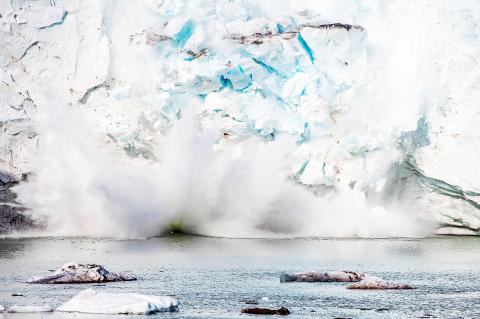
Photo: AFP
Fischler will be in Taipei on Sept. 8 to give a lecture, Decarbonizing the World is a must to save Agriculture and Fisheries, when he will discuss the impact climate change will have on agriculture and fisheries.
“Agriculture and fisheries are more affected from climate change than most other economic sectors. Therefore, the farmers and fishermen must engage in climate policy as much as they can,” Fischler says.
The lecture will be held at the Taiwan Academy of Banking and Finance and is part of the Lung Yingtai Cultural Foundation’s (龍應台文化基金會) Taipei Salon (台北沙龍) series of lectures by international speakers. Lung Ying-tai (龍應台), the foundation’s founder and former Minister of Culture, will moderate.

Photo courtesy of Andrei Pungovschi
Though the Academia Sinica report may fall short in its recommendations on curbing temperature rise, Fischler agrees with its overall conclusion that Taiwan, like many developed countries, isn’t facing up to the urgency of climate change.
According to the report, Taiwan’s greenhouse gas emissions in 2015 reached 284.643 million metric tonnes of carbon dioxide equivalent, up from 137.854 million metric tonnes in 1990. Taiwan placed 56th in the Germanwatch Climate Change Performance Index 2019, dropping two places from last year’s report and ranking among the world’s worst performers.
“Many developing countries are for the time being more ambitious to implement the Paris Agreement than the industrialized countries. What is needed is more pressure from the civil society. Then the political leaders will go together and tackle the problem,” Fischler says.
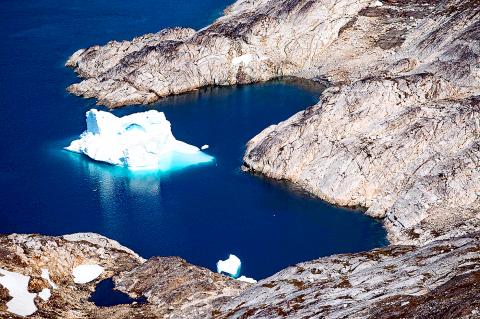
Photo: AFP
For a country with significant fisheries and agricultural industries, time is running out to do so because the world “must achieve decarbonization within the next 30 years.”
When asked if nuclear power is an option while transitioning to renewable energy, Fischler says it depends on a proper risk assessment, which varies from country to country.
Instead, Taiwan, like the rest of the world, has to “increase energy efficiency, to drastically reduce energy consumption in the industry, and only for the remaining demand to foster renewable energy sources,” he says.
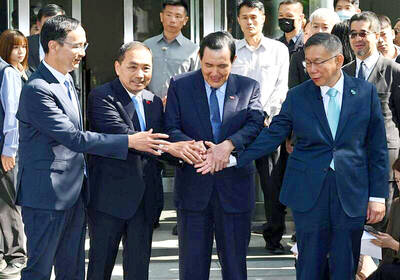
Has the Taiwan People’s Party (TPP) changed under the leadership of Huang Kuo-chang (黃國昌)? In tone and messaging, it obviously has, but this is largely driven by events over the past year. How much is surface noise, and how much is substance? How differently party founder Ko Wen-je (柯文哲) would have handled these events is impossible to determine because the biggest event was Ko’s own arrest on multiple corruption charges and being jailed incommunicado. To understand the similarities and differences that may be evolving in the Huang era, we must first understand Ko’s TPP. ELECTORAL STRATEGY The party’s strategy under Ko was
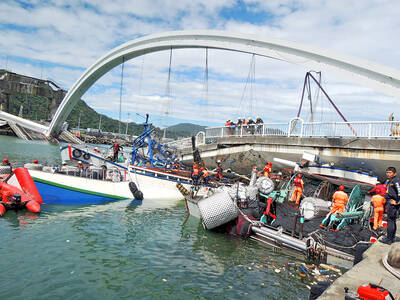
Before the recall election drowned out other news, CNN last month became the latest in a long line of media organs to report on abuses of migrant workers in Taiwan’s fishing fleet. After a brief flare of interest, the news media moved on. The migrant worker issues, however, did not. CNN’s stinging title, “Taiwan is held up as a bastion of liberal values. But migrant workers report abuse, injury and death in its fishing industry,” was widely quoted, including by the Fisheries Agency in its response. It obviously hurt. The Fisheries Agency was not slow to convey a classic government
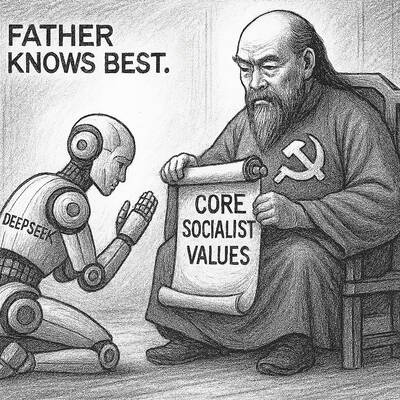
It’s Aug. 8, Father’s Day in Taiwan. I asked a Chinese chatbot a simple question: “How is Father’s Day celebrated in Taiwan and China?” The answer was as ideological as it was unexpected. The AI said Taiwan is “a region” (地區) and “a province of China” (中國的省份). It then adopted the collective pronoun “we” to praise the holiday in the voice of the “Chinese government,” saying Father’s Day aligns with “core socialist values” of the “Chinese nation.” The chatbot was DeepSeek, the fastest growing app ever to reach 100 million users (in seven days!) and one of the world’s most advanced and
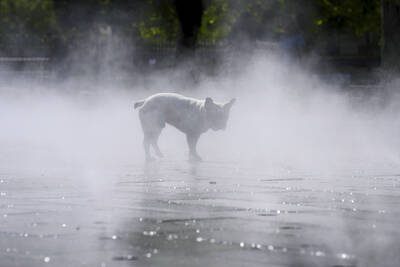
It turns out many Americans aren’t great at identifying which personal decisions contribute most to climate change. A study recently published by the National Academy of Sciences found that when asked to rank actions, such as swapping a car that uses gasoline for an electric one, carpooling or reducing food waste, participants weren’t very accurate when assessing how much those actions contributed to climate change, which is caused mostly by the release of greenhouse gases that happen when fuels like gasoline, oil and coal are burned. “People over-assign impact to actually pretty low-impact actions such as recycling, and underestimate the actual carbon